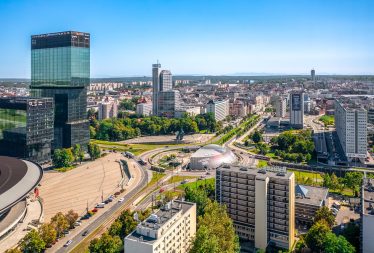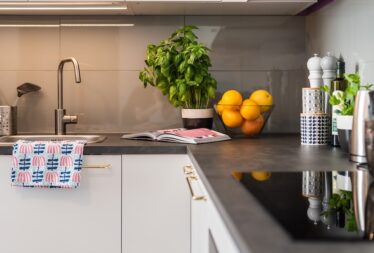A Handy Guide On Saving Water, Electricity, And Other Utilities At Home
Are you worried about the constantly increasing utility bills? Rising prices are one thing, but proper resource management is another. Pay attention to your daily habits and see how much depends on you. Our tips will benefit both: your budget and the planet.
Is a shower really an economic option?
Regular water and electricity usage is the highest cost of our monthly utility bills. They’re also the most noticeable. And do you know where you use most of them? In the shower! Oh yes! One minute of shower is about 13 liters of water. When taking a 10-minute shower, the result is 130 liters and the cost is about 2,30 PLN*. Another (ever higher) cost is of heating the water to around 35 degrees Celsius by an electric water heater. Do you prefer warmer showers? Then the price will be even higher.
Now let’s see a simple calculation: 2 people taking just 1 shower a day results in a monthly cost of around 300 PLN. And how long does your shower take? You don’t know? Well, next time take a mobile with you and set a stopwatch to time the shower. Then check the result and ask yourself honestly: is standing 10 minutes under hot running water necessary every day?
Here, we’ll give you a quick comparison: a regular-sized bathtub has a capacity of 200 liters. If you fill half of it, you’ll use around 100 liters of water for one bath, which is even less than a 10-minute shower. And yet we think a shower is more water-saving. Really?
*Important! All the calculations are based on the average water and electricity prices in the city of Katowice in 2025.
Do you know how much one washing machine cycle costs, and does the eco mode in the dishwasher save money?
The washing machine and the dishwasher are other suspects of high water and electricity bills. Well, let’s take a look at whether they are indeed so energy-consuming.
One standard cycle of a washing machine uses around 40-45 liters of water and the cost is around 0,80 PLN. Adding the cost of electricity to it, the total cost of one cycle is about 1,20 PLN (and 38,20 PLN a month if you do it every day).
As for the dishwasher, the eco mode is the longest one, but also the most economical. One eco-mode washing cycle uses around 10 liters of water. Adding the electricity costs, the final result is about 0,60 PLN/cycle (and 17 PLN/month). This doesn’t seem like a lot, right? In fact, a dishwasher uses way less water than hand washing (calculations say it’s even 8 times less!). And we didn’t even mention the convenience of a dishwasher. You don’t have one? Consider the investment.
*Important! All the calculations are based on the average water and electricity prices in the city of Katowice in 2025.
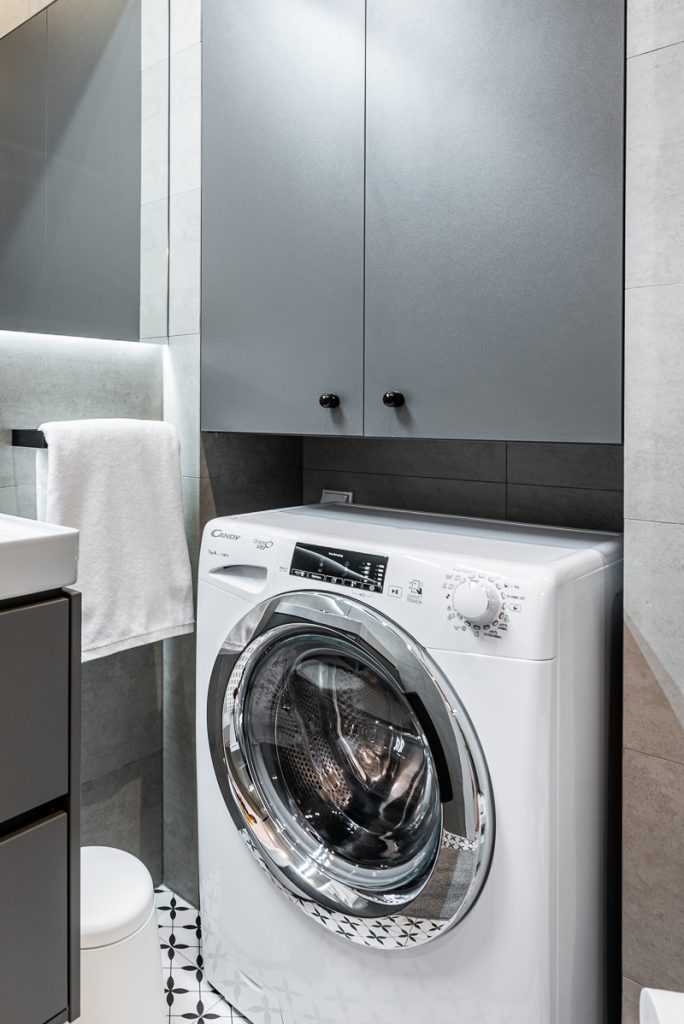
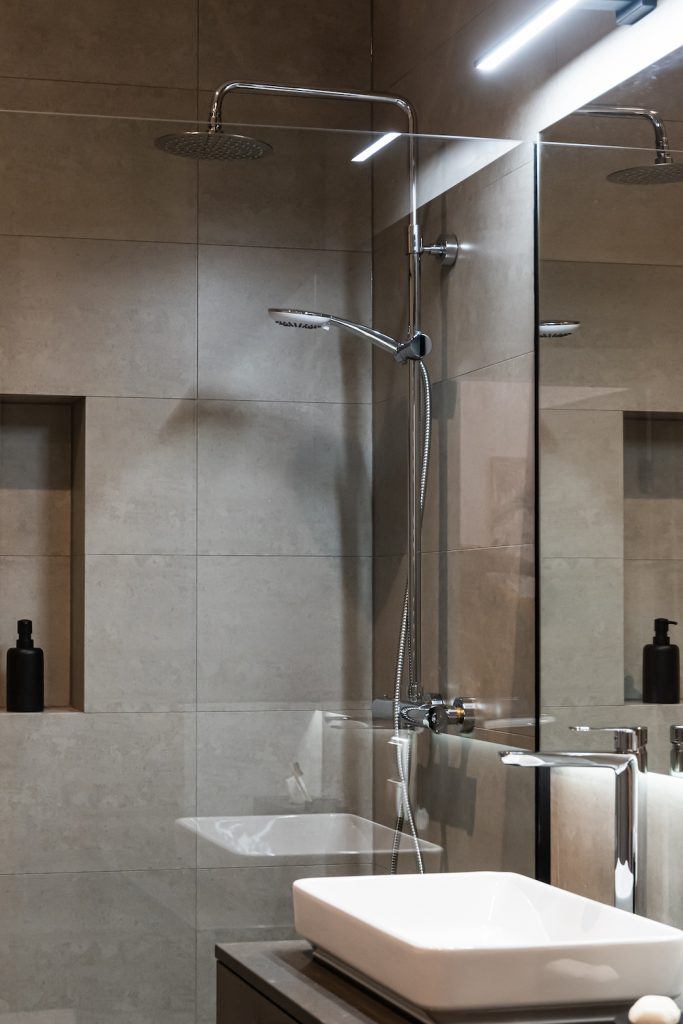
Saving water at home
Ok, you already know that the most water-consuming home activities are taking a shower and hand washing dishes. Of course, they’ll impact the most, but there are many different daily habits you can change to make your household more energy-efficient and money-saving. Some of them are small, so you might not see a change in your monthly bills, but they’ll definitely add up in the annual billing. You know… look after the pennies and the dollars will look after themselves.
Other ways to save water in the bathroom
- when washing your hair, turn off the faucet of the shower
- when using a bathtub, don’t fill it full with hot water, but add it gradually as it cools down
- turn the faucet off when brushing your tooth
- plan your laundry, and always wash a full load. If you don’t have enough bedding, towels, or underwear to wait for a full load, buy some extra pieces
Other ways to save water in the kitchen
- always fill your dishwasher up
- avoid hand washing. If you have to wash something by hand, don’t do it under the running water. Fill your sink and soak the dirty dishes
- when buying pots, pans, and tableware, choose the dishwasher-friendly pieces
- choose the eco-mode
- don’t wash empty recyclables (waste recycling doesn’t require this)
- don’t wash veggies and fruit under running water. Better fill the bowl or sink and leave them for a while in the water
- keep the water from boiling eggs or vegetables to water your plants
- if you have a house, collect the rainwater. You can reuse it in your garden
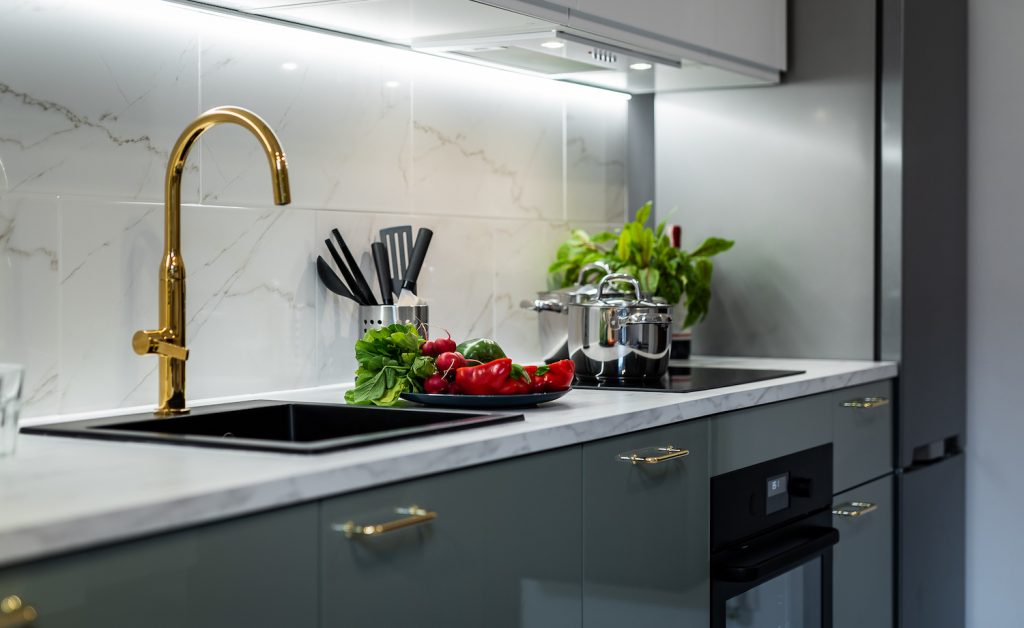
Do you know which appliances use the most energy?
We guess the first things you already think about are the TV and kitchen appliances and all consumer electronic pieces: computer, mobile phone (sometimes more than one), tablet, and a Bluetooth speaker. Even a smartwatch requires charging regularly!
If you look at the actual power supply, the latest generation of devices is energy-efficient and the electricity cost per piece isn’t very high. Of course, the amount you have affects the total consumption, but the most energy-consuming goods are, again, the air and water heating units (electric water heater, radiators, AC unit, the split). If your water heater is set on 80 degrees Celsius, or in the summertime, your AC unit runs constantly, the utility bills can be frightening.
Other ways to save electricity around the house
- do you have the above-mentioned water heater? Set it to 60 or even 50 degrees. It will be more than enough
- leaving for the weekend, turn off all the energy-consuming devices (apart from the fridge, of course). Lower your radiator down to the minimum safe level
- unplug all the things you’re not using. The most convenient way to do it is to plug them all into a power strip with an on/off button
- don’t turn lights on during the daytime. Keep the curtains or blinds open all day long
- replace your bulbs with energy-saving ones
- when leaving a room turn the lights off
- don’t turn the TV on when coming home, but only when watching
- don’t keep your computer or monitor on when you’re not using them
- are you turning the AC on? Close the windows, cool the room down, and turn the AC off
- ask your electricity supplier if there are different day/night rates. If you’re a night person, maybe you use more energy then? You can also do the laundry at night
In the kitchen:
- plan your meals ahead: a soup or a pasta sauce can be prepared in a bigger pot, keep refrigerated, or even frozen
- do you drink tea? Heat only the amount of water you actually need to fill your cup
- cook with the lid on – the food will boil faster and it’ll keep more nutritional values
- choose pots and pans that heat faster
- plan your baking ahead – put the next dish/cake while the oven is still hot; roast similar foods together (for example meat and veggies for the same dinner)
- turn the oven off a few minutes before the end of baking. The temperature will stay there for a while
- don’t set the fridge to the lowest temperature. Keep the meat or fish on the lowest and coldest shelf. The rest doesn’t require to be almost frozen
- before you open the fridge think about what you want to take off
- before storing food in the fridge or freezer, always cool it down to room temperature
- remove the ice layers from your freezer. Every 3 mm of ice increases the electricity demand by 10%
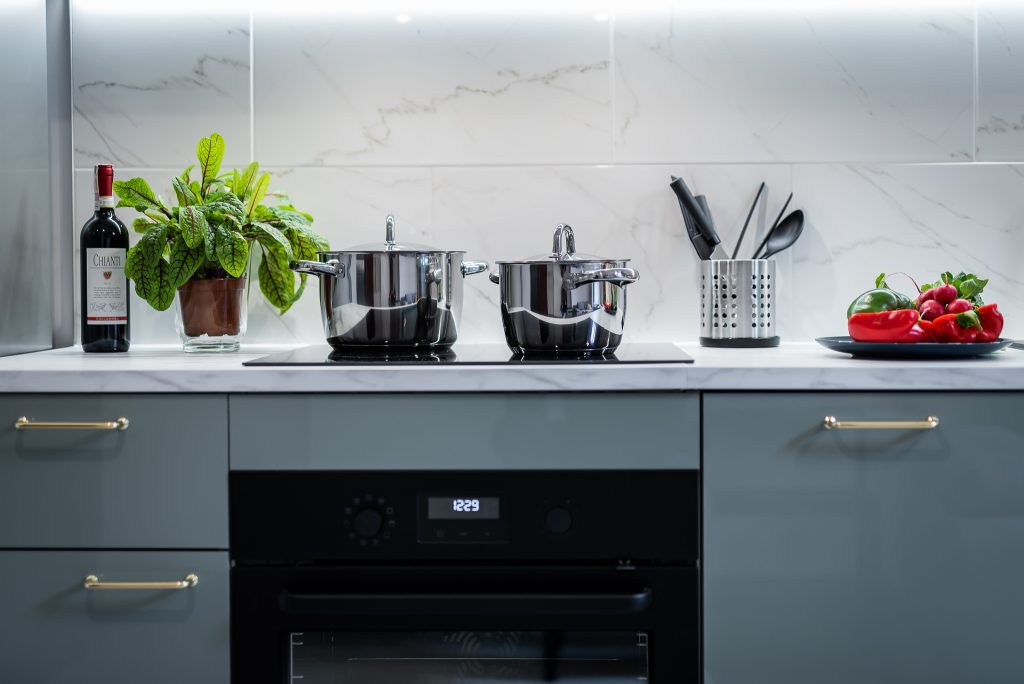
How warm should it be in the bedroom or in the living room?
Probably less than you think. The optimum temperature in the living space while we relax, work, or study is about 20-22 degrees. If it’s warmer, we’re sleepy and tired. If you do some house cleaning or you just move around, this temperature will be even too high. And if you cook or bake, the temperature will rise.
When watching a movie or reading a book, you can always wrap yourself up with a blanket.
What about the bedroom? Here, the best temperature is around 18-19 degrees. Do you think it’s too cold? So invest in a warmer quilt. Your body rests much better if it doesn’t have to waste energy on cooling down. Also, you’ll breathe better. Unfortunately, our apartments are usually overheated and we open a window to cool them down the fastest way. When the temperature falls suddenly, the central heating turns on, and the result is counterproductive.
Do you know how warm your apartment is? If not, buy a thermometer and start monitoring the temperature. If it’s way too hot, turn the radiator off and put a warmer sweater on.
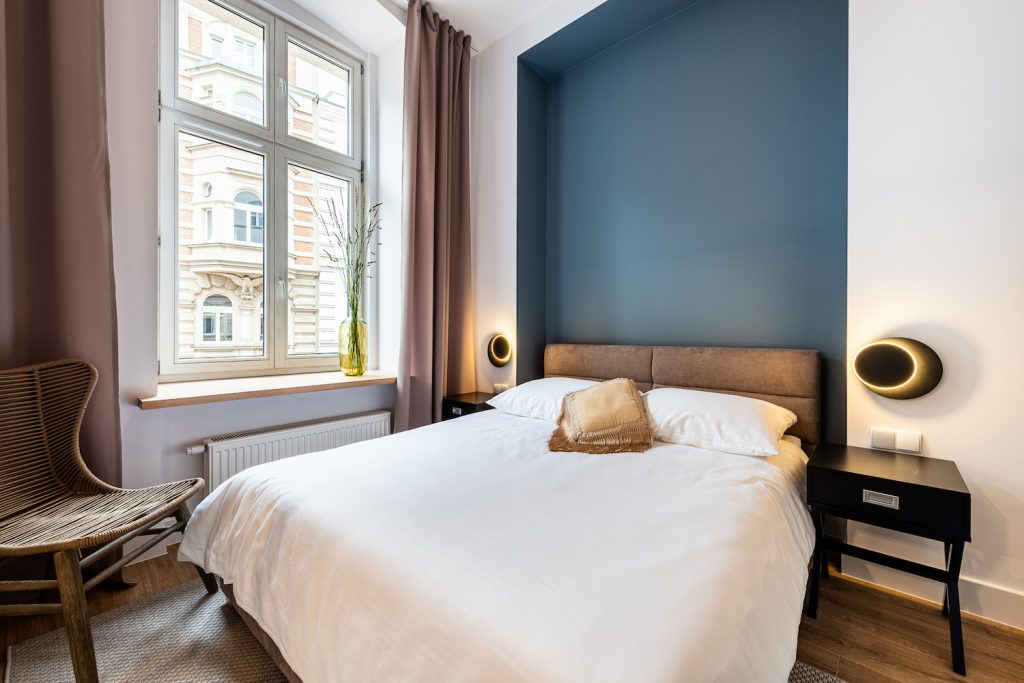
Saving money on central heating
- first of all: don’t overheat your apartment!
- find out what temperature is best for you personally. Check it regularly in all the rooms and try not to exceed it
- start using the thermostats on your radiators – turn them down when you go out or leave for a longer period of time
- turn the heating off when you open a window. You don’t want to heat the whole outside
- and the opposite: when turning the radiators on, never leave the windows open
Small changes have a big effect
As you’ve already noticed, most of the advice we share with you is rather small and not complicated. They don’t require a big effort, but regularity and awareness. The final numbers on your utility bills are the total sum of many small factors, so start paying more attention to details and daily habits that may need some improvement.
What else can you do?
- check the meters on a regular basis – monitor the utilities usage after every month, try to find the reasons for any big differences
- ask your friends about their usage and compare it with yours
- fix (or report to the landlord) any problems immediately
- make sure all the taps are sealed properly
- if you have such a possibility, seal the windows and doors
- replace old energy-consuming appliances with efficient ones
- educate your guests and don’t be afraid to
- remember about proper waste management – recycled waste collection is only half the price of the unsorted one
- point out to neighbors who don’t do it properly – you can all be fined
- if you work from home, consider using a coworking space. Calculate how much energy and water you use, how many coffees you drink. A desk in a coworking space can be a more economical choice
- do you go to the gym or the swimming pool? Take a shower there!
Choosing an energy-saving apartment
Of course many of us cannot choose the place we live in. But… if you plan to buy or rent an apartment, you can focus on some aspects that will result in lower bills in the future. Which?
- you don’t like the heat? Choose a ground/first-floor apartment. You’ll save money on AC
- are the windows new and the walls insulated? This will make central heating more efficient
- does the apartment face South/West or North? South-facing rooms are usually the warmest ones
- does the apartment have small or big windows? The bigger the window, the more light comes in
- is the apartment big with high ceilings? You’ll spend more money on central heating
- is there a private corridor or just an open staircase? A private one will keep your entrance warmer
- how is the apartment located? The more neighbors you have, wall to wall, the easier it is to keep the entire space warm
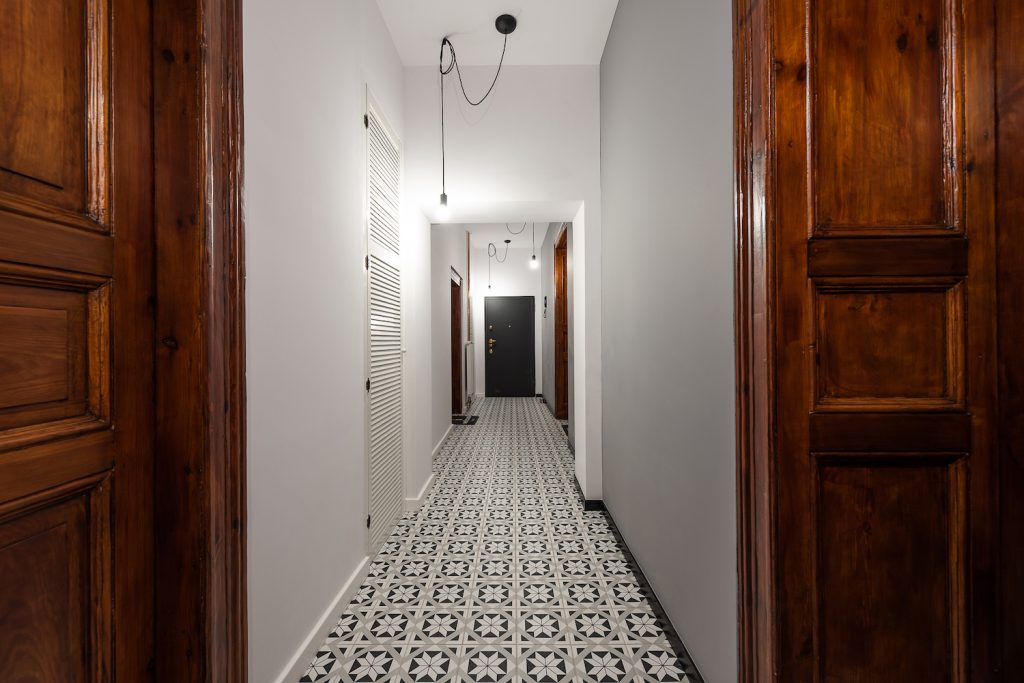
No changes are made without a small commitment and effort. We believe that implementing just some of our tips will impact your utilities usage, and we hope your next bills will surprise you in a positive way.
Let’s get to work! Where are you going to start?
